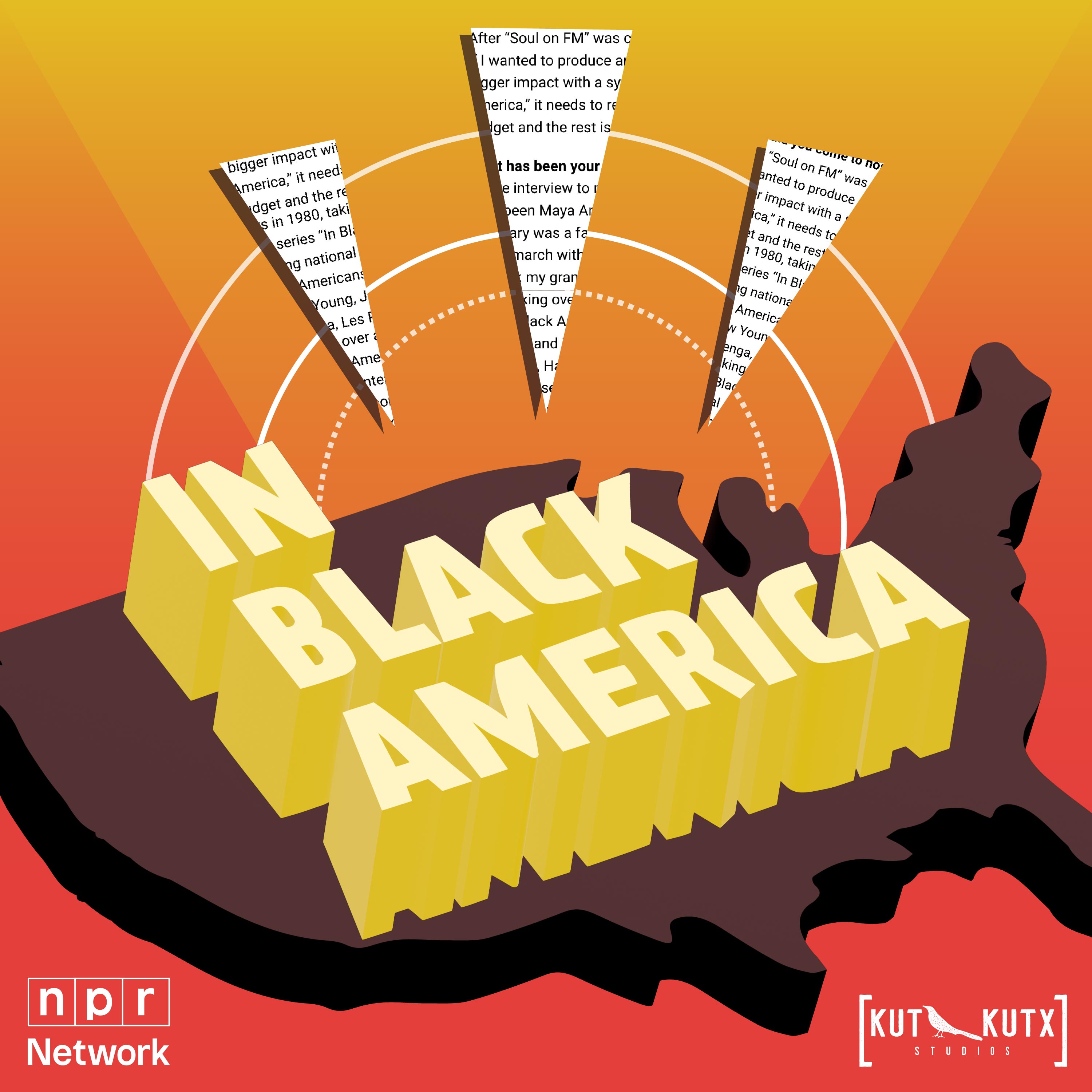

In Black America
KUT & KUTX Studios, John L. Hanson
IBA profiles a diverse selection of current and historically significant figures whose stories help illuminate life in Black America.
Episodes
Mentioned books

Oct 4, 2020 • 30min
John R. Lewis, pt. 2 (Ep. 44, 2020)
On this week’s program, In Black America producer and host John L. Hanson, Jr. concludes a tribute to the late John Robert Lewis, Congressman from Georgia’s 5th Congressional District and Civil Rights pioneer and leader, with an interview recorded in May, 2020.
The post John R. Lewis, pt. 2 (Ep. 44, 2020) appeared first on KUT & KUTX Studios -- Podcasts.

Sep 28, 2020 • 30min
John Lewis, pt. 1 (Ep. 43, 2020)
On this week’s program, In Black America producer and host John L. Hanson, Jr. presents Part One of a tribute to the late John Robert Lewis, Congressman from Georgia’s 5th Congressional District and Civil Rights pioneer and leader, who passed away July 17, 2020.
The post John Lewis, pt. 1 (Ep. 43, 2020) appeared first on KUT & KUTX Studios -- Podcasts.

Sep 20, 2020 • 29min
Ed Gordon (Ep. 42, 2020)
This week on In Black America, producer and host John L. Hanson, Jr. speaks with Emmy Award-winning television journalist Ed Gordon, a news anchor and interview program host on BET, CBS, NBC, NPR and MSNBC. He is the author of Conversations in Black: On Power, Politics and Leadership.
The post Ed Gordon (Ep. 42, 2020) appeared first on KUT & KUTX Studios -- Podcasts.

Sep 14, 2020 • 29min
Cathy Hughes, pt.2 (Ep. 41, 2020)
This week on In Black America, producer and host John L. Hanson, Jr. concludes a conversation with Cathy Hughes, veteran radio and television professional and founder and Chairwoman of Urban One, Inc., the largest African American owned and operated media company in America.
The post Cathy Hughes, pt.2 (Ep. 41, 2020) appeared first on KUT & KUTX Studios -- Podcasts.

Sep 7, 2020 • 30min
Cathy Hughes, pt. 1 (Ep. 40, 2020)
This week on In Black America, producer and host John L. Hanson, Jr. begins a conversation with Cathy Hughes, veteran radio and television professional and founder and Chairwoman of Urban One, Inc., the largest African American owned and operated media company in America.
The post Cathy Hughes, pt. 1 (Ep. 40, 2020) appeared first on KUT & KUTX Studios -- Podcasts.

Aug 31, 2020 • 30min
Leslie “Les” Payne (Ep. 39, 2020)
This week on In Black America, producer and host John L. Hanson, Jr. remembers the late Leslie “Les” Payne, a Pulitzer Prize winning reporter and former Associate Managing Editor of Newsday. Payne, whose reporting, editing and leadership helped bring Newsday national and international prominence, died in March, 2018 at the age of 76.
The post Leslie “Les” Payne (Ep. 39, 2020) appeared first on KUT & KUTX Studios -- Podcasts.

Aug 23, 2020 • 30min
Dr. Rebecca Etz and Christine Bechtel (Ep. 38, 2020)
This week on In Black America, producer and host John L. Hanson, Jr. discusses racism and its impact on public health with Dr. Rebecca S. Etz, PhD., Associate Professor of Family Medicine and Population Health at Virginia Commonwealth University and Co-Director of the Larry A. Green Center, and Christine Bechtel, patient advocate and co-founder of 3rd Conversation.
The post Dr. Rebecca Etz and Christine Bechtel (Ep. 38, 2020) appeared first on KUT & KUTX Studios -- Podcasts.

Aug 17, 2020 • 30min
Dyana Williams (Ep. 37, 2020)
This week on In Black America, producer and host John L. Hanson, Jr. speaks with Dyana Williams, a veteran radio and television personality, music industry professional, member of the Board of Directors of the National Museum of African American Music, and co-originator and co-founder of Black Music Month.
The full transcript of this episode of In Black America is available on the KUT & KUTX Studio website. The transcript is also available as subtitles or captions on some podcast apps.
The post Dyana Williams (Ep. 37, 2020) appeared first on KUT & KUTX Studios -- Podcasts.

Aug 11, 2020 • 30min
A Tribute to Earl G. Graves, Sr. (Ep. 36, 2020)
This week on In Black America, producer and host John L. Hanson, Jr. presents a 2001 interview with Earl G. Graves, Sr., an entrepreneur, publisher, and philanthropist who died April 6, 2020. Graves was the founder of Black Enterprise, a media company focused on black entrepreneurship and black businesses.
The post A Tribute to Earl G. Graves, Sr. (Ep. 36, 2020) appeared first on KUT & KUTX Studios -- Podcasts.

Aug 4, 2020 • 30min
Dan C. Goldberg (Ep. 35, 2020)
This week on In Black America, producer and host John L. Hanson discusses the history of African Americans in U.S. Armed Services with Dan C. Goldberg, a health-care reporter with Politico, and author of The Golden 13: How Black Men Won The Right To Wear Navy Gold.
The post Dan C. Goldberg (Ep. 35, 2020) appeared first on KUT & KUTX Studios -- Podcasts.


